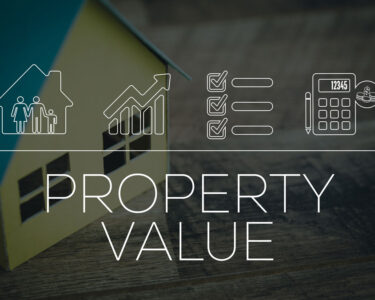Despite Florida’s booming housing market, many homeowners continue to struggle to pay their mortgages, faced with either financial distress, unemployment or other COVID-related issues. While COVID-related programs offered by the government have ended, mortgage modifications are still around and may be the difference between keeping your home or losing it in foreclosure.
What Is a Loan Modification?
A mortgage loan modification is an adjustment to any term of your current existing mortgage. It could be an adjustment of the interest rate to a lower one. It could also be an extension of the loan lifetime, extending a 30-year mortgage to a 40-year mortgage, to lower the monthly payments. It could also mean a forgiveness of a portion of the mortgage balance, or simply adding any past due amounts from months or years of nonpayment to the back of the loan. All these adjustments are done for the homeowner to be able to keep their home and afford their payment.
A loan modification is not a refinance. Refinancing a mortgage means ending your current mortgage and taking out a new loan. This often involves an appraisal and credit checks as well as closing costs.
Rather, a loan modification changes the terms of your existing mortgage while the original mortgage remains in place. There are no closing costs or out-of-pocket costs to the homeowner associated with the modification.
Why Do Lenders Agree to Modify Existing Mortgages?
Most lenders prefer to keep the current homeowner in the property rather than initiate a foreclosure. Foreclosures are not only expensive for the lender but take years to process through the court, resulting in significant losses for the banks.
Is It Easy to Qualify for a Loan Modification?
Banks apply formulas to determine whether the borrower qualifies for a loan modification. This includes determining the current property value, as well as debt, income and credit standing. Many attorneys, such as my firm, who have been assisting borrowers with loan modifications since 2008, have programs that make the same calculations the banks do in order to qualify our clients. With these programs, we can prequalify clients prior to applying for a loan modification and present the most viable solutions to each homeowner in distress.
Will Your Lender Agree to Modify?
A lender will not agree to modify your loan merely because you are able to prove financial hardship or COVID-related hardship. You will also need to show that you have the resources available to make the payments in the future. It takes an experienced negotiator to review all your qualifications and then submit the proper package to your lender.
Hiring the right lawyer to handle your loan modification can make the difference between an approved modification and foreclosure. While we have been handling all types of loan modifications, foreclosure defense, refinances and all other mortgage-related matters for over 23 years, the key is to make sure you qualify for the program you want prior to submitting any application.
Feel free to contact me to discuss your loan options. Whether you are looking to modify your loan or refinance, are facing foreclosure or merely want to strategize to determine what your best options are for an investment property, we are here to help. Contact us today for a free consultation. It could be the difference between keeping your home or losing it.














 Deering Estate
Deering Estate
 Massage Envy South Miami
Massage Envy South Miami
 Calla Blow Dry
Calla Blow Dry
 My Derma Clinic
My Derma Clinic
 Sushi Maki
Sushi Maki
 Sports Grill
Sports Grill
 The Healthy Kitchen
The Healthy Kitchen
 Golden Rule Seafood
Golden Rule Seafood
 Malanga Cuban Café
Malanga Cuban Café

 Kathleen Ballard
Kathleen Ballard
 Panter, Panter & Sampedro
Panter, Panter & Sampedro
 Vintage Liquors
Vintage Liquors
 The Dog from Ipanema
The Dog from Ipanema
 Rubinstein Family Chiropractic
Rubinstein Family Chiropractic
 Your Pet’s Best
Your Pet’s Best
 Indigo Republic
Indigo Republic




 ATR Luxury Homes
ATR Luxury Homes


 2112 Design Studio
2112 Design Studio
 Hamilton Fox & Company
Hamilton Fox & Company
 Creative Design Services
Creative Design Services
 Best Pest Professionals
Best Pest Professionals
 HD Tree Services
HD Tree Services
 Trinity Air Conditioning Company
Trinity Air Conditioning Company
 Cisca Construction & Development
Cisca Construction & Development
 Mosquito Joe
Mosquito Joe
 Cutler Bay Solar Solutions
Cutler Bay Solar Solutions


 Miami Royal Ballet & Dance
Miami Royal Ballet & Dance
 Christopher Columbus
Christopher Columbus
 Pineview Preschools
Pineview Preschools
 Westminster
Westminster
 Carrollton
Carrollton
 Lil’ Jungle
Lil’ Jungle
 Frost Science Museum
Frost Science Museum
 Palmer Trinity School
Palmer Trinity School
 South Florida Music
South Florida Music
 Pinecrest Orthodontics
Pinecrest Orthodontics
 Dr. Bob Pediatric Dentist
Dr. Bob Pediatric Dentist
 d.pediatrics
d.pediatrics
 South Miami Women’s Health
South Miami Women’s Health

 The Spot Barbershop
The Spot Barbershop
 My Derma Clinic
My Derma Clinic




 Miami Dance Project
Miami Dance Project

 Rubinstein Family Chiropractic
Rubinstein Family Chiropractic
 Indigo Republic
Indigo Republic

 Safes Universe
Safes Universe
 Vintage Liquors
Vintage Liquors
 Evenings Delight
Evenings Delight





 Atchana’s Homegrown Thai
Atchana’s Homegrown Thai
 Baptist Health South Florida
Baptist Health South Florida

 Laser Eye Center of Miami
Laser Eye Center of Miami
 Visiting Angels
Visiting Angels
 OpusCare of South Florida
OpusCare of South Florida

 Your Pet’s Best
Your Pet’s Best





 HD Tree Services
HD Tree Services
 Hamilton Fox & Company
Hamilton Fox & Company


 Creative Design Services
Creative Design Services